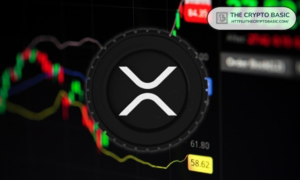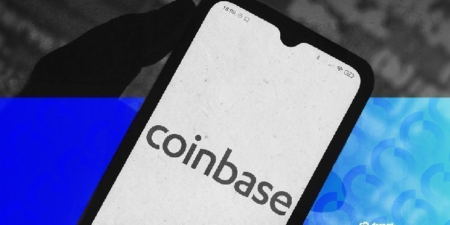The issue of unclaimed cryptocurrency has drawn renewed focus after Binance founder Changpeng Zhao called on crypto platforms to integrate inheritance features. Zhao, who led Binance until stepping down in 2023, stated that all exchanges should implement a “will function” to prevent the loss of digital assets after a user’s death. His remarks follow mounting evidence that an estimated $1 billion in cryptocurrency remains unclaimed annually due to insufficient estate planning.
https://x.com/cz_binance/status/1935538282064134150
Zhao’s comments came as Binance rolled out an emergency contact and inheritance tool. The tool, launched in June 2025, allows users to assign a trusted contact who can initiate claims if the account becomes inactive. Zhao stressed that death is inevitable and platforms must address asset continuity.
Binance Introduces Emergency Contact System for Inactive Accounts
Binance added an inheritance feature to its user interface on June 12, 2025. The tool lets account holders select emergency contacts. These contacts receive alerts when the primary account shows no activity for a set time. Once notified, they can begin a claims process to access the account’s digital holdings.
The system reflects an effort to tackle the lack of asset transfer procedures in decentralized finance. Most cryptocurrency exchanges do not allow users to name beneficiaries directly. Binance’s feature represents one of the first public inheritance tools among large exchanges.
The measure also includes access provisions for authorized representatives. These individuals can verify the account holder’s status and submit documentation to begin the transfer process. The update aims to prevent digital assets from becoming permanently inaccessible.
Industry Data Reveals Over $1 Billion in Annual Crypto Losses
According to industry estimates, AInvest reports that over $1 billion in cryptocurrency becomes unclaimed each year. The primary cause is poor inheritance planning. Many users fail to document their wallets, private keys, or access credentials. Without this data, even close family members cannot retrieve the assets.
Several high-profile cases have highlighted this issue. For example, in 2018, the sudden death of QuadrigaCX founder Gerald Cotten left $190 million in cryptocurrency locked in inaccessible wallets. Other cases, though smaller in value, continue to surface each year across multiple jurisdictions.
Legal experts have advised crypto holders to prepare estate documents and avoid writing private keys directly in wills. Since most wills become public during probate, doing so could expose the assets to theft. Instead, attorneys recommend separate technical instructions stored securely and referenced in the will.
Legal Complexity Adds to Access Challenges for Heirs
Inheritance of cryptocurrency remains a legal gray area in many jurisdictions. Unlike traditional bank accounts, crypto holdings are not governed by uniform estate laws. In the U.S., digital assets are typically treated as personal property, similar to stocks or collectibles. However, the decentralized nature of blockchain makes enforcement more difficult.
Research by Spaggs Law on what happens to cryptocurrency when we die reveals that access often requires legal documentation and technical knowledge. Some platforms, like Coinbase, require a death certificate, the deceased’s will, and government-issued identification before granting account access. Others prohibit password sharing and may freeze accounts if access violations are detected.
Legal professionals continue to caution that without formal planning, families may face prolonged court proceedings. They may also risk losing the digital assets altogether if no recovery path exists. Dubai-based lawyer Irina Heaver has previously warned that many heirs are unable to reclaim crypto due to a lack of preparation.
Multisig Wallets and Smart Contracts as Recovery Tools
Estate planners recommend using multisignature (multisig) wallets to share access across trusted parties. These wallets require multiple keys to approve a transaction. By distributing keys to family members or advisors, holders can create controlled access pathways.
Another option is the use of smart contracts. These can be coded to release assets upon verified events, such as the user’s death. While these contracts provide automation, they still require integration with legal documents to ensure validity.
Platforms and software tools now offer customized inheritance setups. Examples include crypto will generators, custodial inheritance services, and decentralized escrow apps. Cypherock X1 is one such solution that uses encrypted backups to manage key distribution. It includes an estate recovery feature allowing access by verified nominees after death.
Digital Identity and Web3 Accounts Complicate Asset Transfer
The inheritance issue extends beyond just tokenized wealth. Web3 users often maintain social identities, Soulbound Tokens (SBTs), and non-transferable credentials tied to personal wallets. These digital footprints complicate inheritance because some cannot be reassigned or sold.
For example, Binance users noted that Web3 accounts with large follower bases have reputational value. A user with 72,000 followers explained that their account carries social weight, not just financial assets. These intangible forms of value are difficult to distribute using current legal and technical frameworks.
Experts warn against including private keys in the will itself. Since probate courts make wills public, the keys could be stolen. Instead, users are advised to store credentials securely and refer to them in sealed instructions. Wills should also name beneficiaries clearly and match platform requirements. Some exchanges will only honor claims if the will includes their specific documentation criteria. Trusts may also be used to bypass probate and provide direct control over asset transfers.
Calls Grow for Industry-Wide Adoption of Inheritance Features
Zhao’s proposal marks a broader push for the crypto sector to adopt industry-wide inheritance tools. Binance is the first major exchange to act, but other platforms may follow. The goal is to establish asset continuity mechanisms similar to those used in banking and insurance. Zhao also raised the question of how to handle inheritance for minors. This would require legal guardianship procedures and regulatory adjustments.
Some jurisdictions may need to revise property laws to accommodate digital wealth. Traditional institutions have long provided asset transfer options through beneficiaries, trusts, and insurance. Cryptocurrency platforms, by contrast, remain in early stages of offering similar protections. In the absence of formal infrastructure, users must rely on manual planning.
Legal practitioners note that crypto holders are often younger, typically aged 27 to 42. Many have not considered inheritance planning. Despite this, the complexity and value of crypto assets continue to rise, making planning essential. Recent platform additions like Binance’s inheritance feature represent early steps toward financial continuity in digital asset management.
Read the full article here









